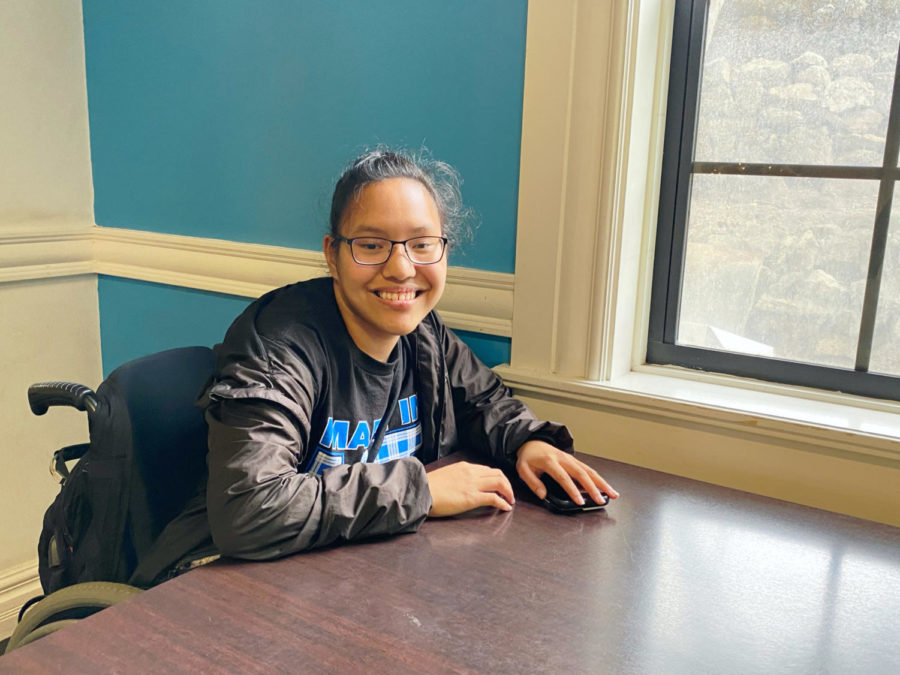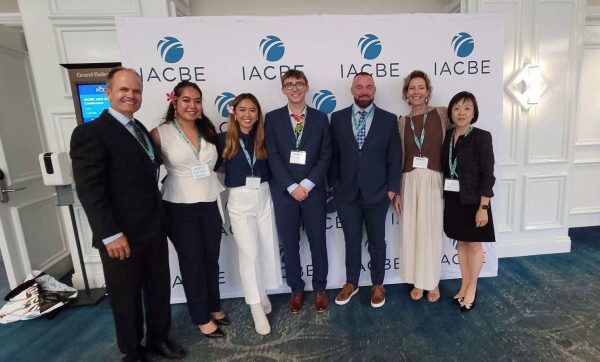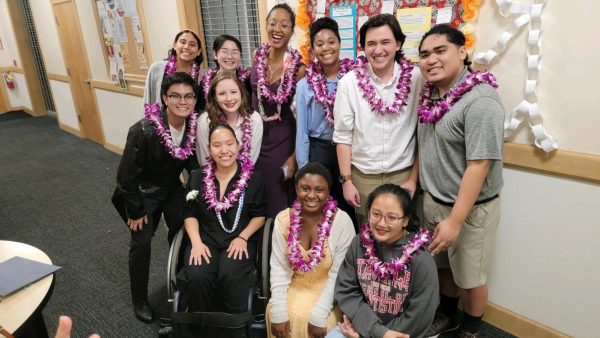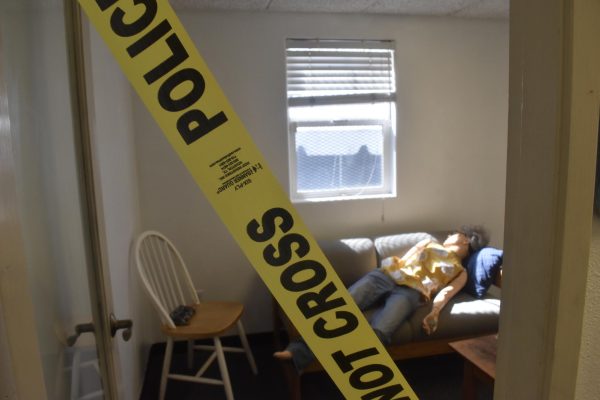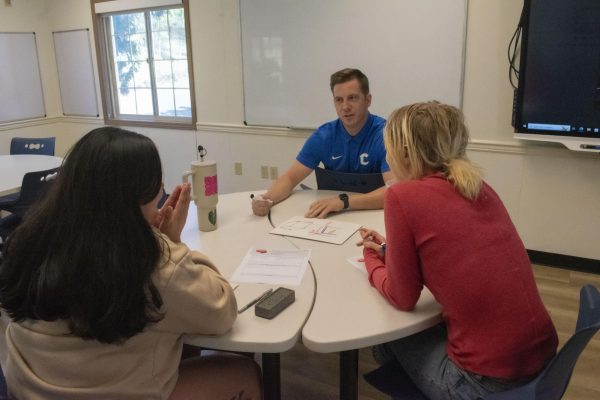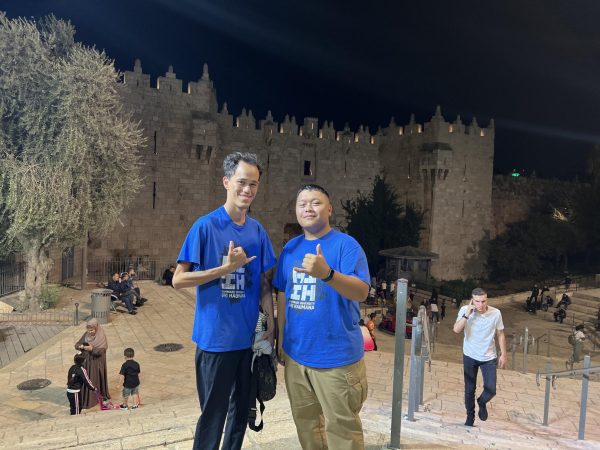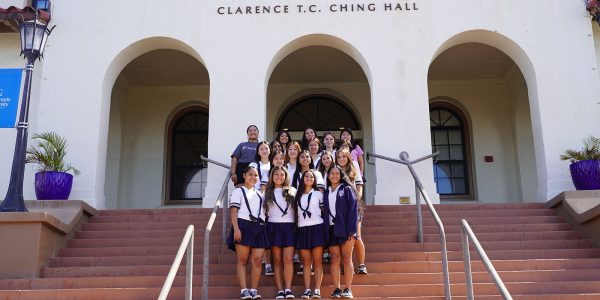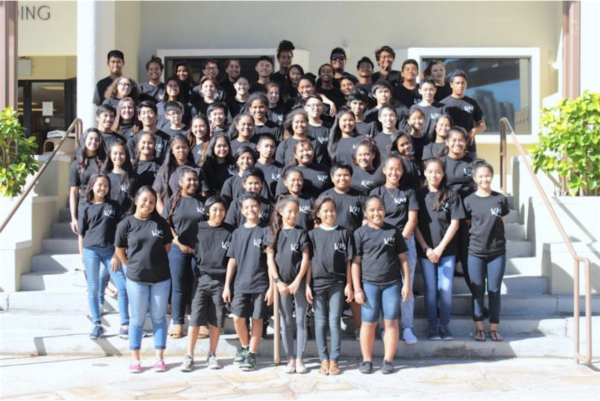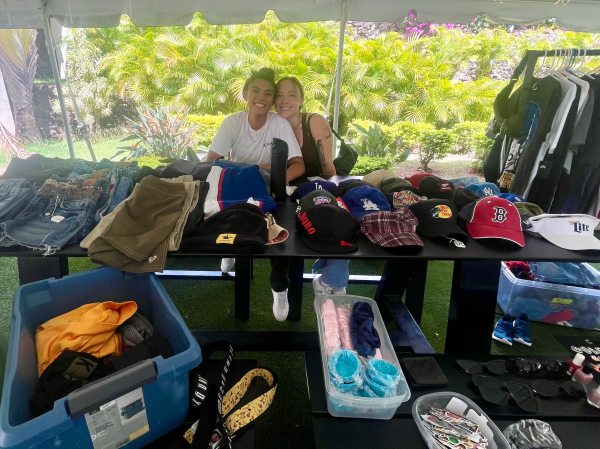Student Chooses ‘Happiness’ Navigating Chaminade in Wheelchair
Maddie Makishima can often be found hanging out with friends or doing homework in the Loo Student Center in between classes or waiting to be picked up by the Handi-Van.
As the nature of the Chaminade hillside campus leaves sweat-glistening Silverswords grumbling and groaning as they traverse seemingly ceaseless staircases and inclines, one particular Silversword holds a contrasting experience.
Maddie Makishima is a second-year Criminal Justice major with spastic cerebal palsy, a condition that affects a person’s muscle mobility. Since this condition mainly afflicts Makishima’s balance and mind-to-muscle connection in her legs, she travels around campus by means of a non-electric wheelchair, an assistive device she’s used since she was about 3 or 4 years old.
“It’s not easy,” Makishima said. “I know how much people complain about how the university is on a hill, and that’s totally hard. I get that. But sometimes it’s harder for me too. Places like the gym, Sullivan Library, Brogan Hall, the crime scene house, the tennis courts, these are all places harder for me to get to.”
Makishima said her spastic cerebral palsy resulted from being born prematurely and suffering insufficient oxygen levels during part of her early brain development. While a chronic condition, the 19-year-old said she’s not in any pain from it.
Under the Americans with Disabilities Act (ADA) of 1990, students with disabilities are federally mandated to be provided with appropriate accommodations depending on their condition.
In Makishima’s case, she gets from class to class with the help of Chaminade security, the ADA lifts and elevators, and Chaminade’s ADA van to drive from first row, like the Loo Student Center or her classes in Henry Hall, to her classes in Brogan Hall.
Makishima attributed post commander of Chaminade Security, Robert Paga, as the person who normally helps her around campus. While Paga’s position leaves him as second-in-command over the whole department, assisting Makishima around campus is one of his priorities. This includes pushing her, supervising her on the ADA lift, and driving her to some of the difficult-to-access locations on upper campus, like the classes she has in Brogan Hall.
Through assisting her as she navigates her life as a student, he described Makishima as “very interesting, smart, kind, and soft-hearted as she educates herself.”
“Going to school every day is far away because she lives in Ewa,” Paga said. “She’s just trying to make something of herself, which is really inspirational to the people around her.”
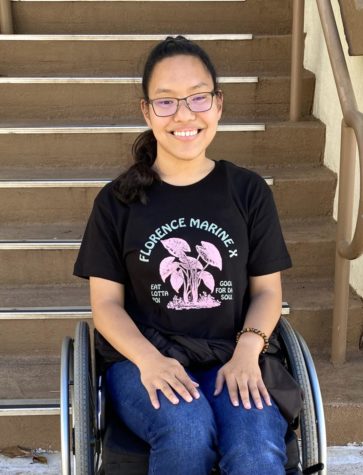
A normal day for Makishima consists of waking up at 5:30 a.m. to commute from Ewa Beach where she lives with her mom. She also splits living in Ewa Beach with living with her father in Salt Lake. Two hours later, she then catches the Handi-Van, which is a public transit alternative for people with disabilities who cannot otherwise use TheBus.
She normally heads home around 2:30 p.m. and coordinates her ride via calling the bus service and scheduling a pickup at the Mystical Rose Oratory, the on-campus chapel where the Handi-Van meets her.
Given the uneven pavement and steep stairs of Chaminade’s campus, some areas around school are more difficult for Makishima to access than others.
“I do feel that I’m adequately accommodated,” Makishima said, “but there are some challenges around campus where accessibility just isn’t enough. When I was a Forensic Science major, I had an opportunity to go up to the crime house, but the classroom had no accessibility, no way to get in.”
Another challenge Makishima faced was not being able to attend her classes on the top floor of Henry Hall due to the ADA lift being out of service for two and a half weeks. She then had to email her professors notifying them to make up work and ask for Zoom format attendance.
Makishima added she lacks the authorization to hold an elevator key, so sometimes she waits up to 15 minutes for a security guard to escort her to her next class if they’re busy, even though some of her classes only have 10 minutes in between sessions.
“As far as accommodations and professors willing to understand my circumstances, I’d say I’m satisfied with the results,” the second-year said. “But sometimes it’s just enough to get by.”
Despite the struggles in traversing the slopes of Chaminade, Makishima expressed that her experience as a student at Chaminade only feels different in the physical realm. When she first visited Chaminade’s campus the summer before she entered her freshman year, she assessed how difficult it could be to move around but refused to let it discourage her.
“I looked at all [of] the campus and I knew it would be tough,” Makishima said, “but I think I could do it.”
Once Makishima graduates in 2025, she aspires to apply her bachelor’s degree by improving the lives of incarcerated youth.
“I want to use my degree to help juvenile delinquents,” Makishima said, “[by making] programs for them to have positive release outlets to help get them back on track to become the best young people they can be.”
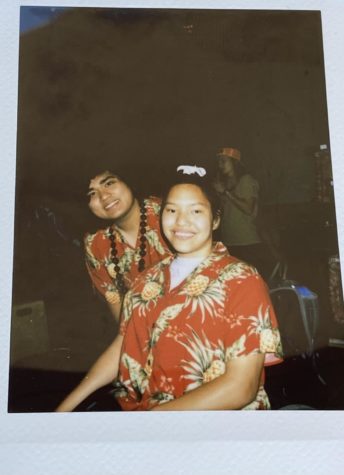
Makishima also double minors in Forensic Science and Performing Arts — the former because it complements her Criminal Justice major and the latter because it’s a discipline she enjoys for fun on the side.
One of the ways Makishima has involved herself in student life is by performing in the university’s fall play, “Things Go Wrong.” Her castmate Rian Pagtakhan, who acted in the play as her role’s brother, said being around her allowed him to see how detail-oriented, caring, humorous, and tenacious she is.
“Whenever she’s really passionate about something, she goes at it full-force,” said 18-year-old Pagtakhan of Ewa Beach.
“Things Go Wrong” playwright and fellow castmate Garrett Hill agreed with Pagtakhan, adding that she’s an interesting, charismatic, and complex character.
“As soon as you’re in a room with her, she automatically gravitates towards everyone,” said Hill, the sophomore Communications major, “and everyone is automatically included. Their opinions are valued, and she never hesitates to engage you.”
If there’s one aspect Makishima wished people understood about her experience, she said it would be having mindfulness. When people ask to meet her places, she asks them to take into consideration the unique way she has in getting there.
“I always try not to let being in a wheelchair stop me,” Makishima said. “Happiness always lasts if you choose to let that be your mindset.”
